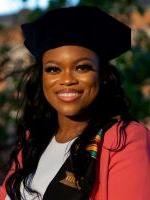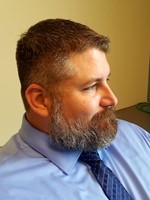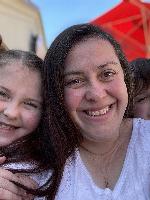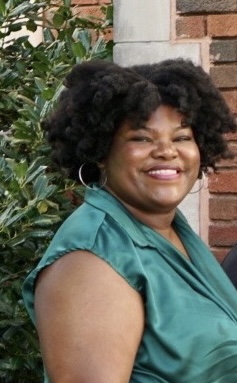

Under Construction: A Toolkit for Promoting Computer Science Research Practice Partnerships |
Participate and share : Poster
Dr. Aishia Daffin Keith Summerford Amanda Walker Dr. Cherelle Young
Successful computer science (CS) education relies on teacher expertise and student access. Research practice partnerships (RPP) can support and promote increased opportunities for CS education in elementary classrooms. You'll leave this session with a research-based toolkit to construct and lead your own CS RPP with elementary teachers.
| Audience: | Coaches, Curriculum/district specialists, Technology coordinators/facilitators |
| Skill level: | Beginner |
| Attendee devices: | Devices useful |
| Attendee device specification: | Smartphone: iOS, Windows, Android Laptop: Chromebook, Mac, PC Tablet: Android, iOS, Windows |
| Topic: | Computer science & computational thinking |
| Grade level: | PK-5 |
| Subject area: | Computer science, STEM/STEAM |
| ISTE Standards: | For Educators: Collaborator
Collaborator
|
While there are national and state initiatives that advocate for PreK-12 CS education, in the state of Alabama, there are twin parachutes that drag on our progress in CS education in elementary schools: Lack of teacher expertise in CS education and limited access to CS education for students.
Previous research by Sadik, Ottenbreit-Leftwich, and Brush (2020) investigated the impact of computer science (CS) and its relationship to teachers’ pedagogical needs. This research, which influences the research protocol of this project, highlights a strong correlation between CS pedagogy and the ability to teach CS effectively in K-12 schools.
During this session, presenters will highlight the work of the project, which takes an action research approach in developing, planning, and implementing computer science professional learning for elementary teachers. Additionally, the project takes a deeper dive into how elementary teachers apply in-practice support (from the RPP or related professional development) to create long-lasting, meaningful CS learning experiences for student participants.
This presentation will feature a collaboration between Tuscaloosa City Schools (TCS) Instructional Technology Specialists and members of the University of Alabama Instructional Technology Faculty to build a research practice partnership (RPP) with TCS elementary teachers in order to promote Computer Science Education in grades Pre-K through 5. Through this partnership, TCS teachers developed CS expertise to support integration of CS concepts into core content areas while using inclusive pedagogical practices to serve black-majority student populations.
During this session, participants will engage in standards-aligned, teacher-constructed activities rooted in CS curriculum best-practices and aligned (by teachers) with core content standards. Session activities are imbued with both student and teacher perspectives, allowing conference participants to inform future strategic planning and curricular implementation with research-based strategies in both CS and culturally-relevant pedagogy. Participants will leave with tools and strategies to help improve instructional practice for integrating CS across various levels and content areas.
Grover, S. (2020). Computer science in K-12 an A to Z handbook on teaching programming. Palo Alto, CA: Edfinity.
Sadik, O., Ottenbreit-Leftwich, A., & Brush, T. (2020). Secondary computer science teachers’ pedagogical needs. International Journal of Computer Science Education in Schools, 4(1), 33 - 52. https://doi.org/10.21585/ijcses.v4i1.79
Williams, H. (2021). No fear coding: Computational thinking across the k-5 classroom (2nd ed.). International Society for Technology in Education.

Instructional Technology Specialist, Tuscaloosa City Schools Research Focus on Instructional Technology Integration Presenter: Alabama Education Technology Conference - 2018, 2019 Presenter: International Society for Technology in Education National Conference (ISTE) - 2017, 2018

Keith Summerford is an Instructional Technology Specialist living in Tuscaloosa, Alabama. I work with teachers to integrate Google Apps for Education, Schoology, and other district provided tech resources on a daily basis. Before becoming an Instructional Technology Specialist I was a Middle School Social Studies Teacher for 12 years and an Instructional Technology Coach for 4 years. In addition to teaching I have coached football, baseball, and sponsored the SGA. I also have experience creating and sponsoring clubs for middle school students. I enjoy all types of technology and have lots of hobbies including DIY projects, gaming, radio controlled vehicles, painting, website design, and coding.

Amanda is an Instructional Technology Specialist for Tuscaloosa City Schools with 18 years of teaching experience. As a Google Certified Educator, she works with TCS elementary schools to inspire teachers and students with integration of digital learning concepts into core instruction. Amanda's greatest passion in life is to see teachers and students successfully collaborate as a community of engaged learners and future-ready problem solvers.

Cherelle Young is an Instructional Technology Specialist for Tuscaloosa City Schools in Tuscaloosa, AL. She has experience in presenting at regional technology conferences for in-service educators. She has presented at professional development workshops within school districts for teachers throughout the state of Alabama. She has a Bachelor of Arts degree in Elementary Education from Auburn University Montgomery, Master of Arts degree in English for Speaker of Other Languages from Auburn University, and a doctoral degree in Instructional Technology at the University of Alabama.